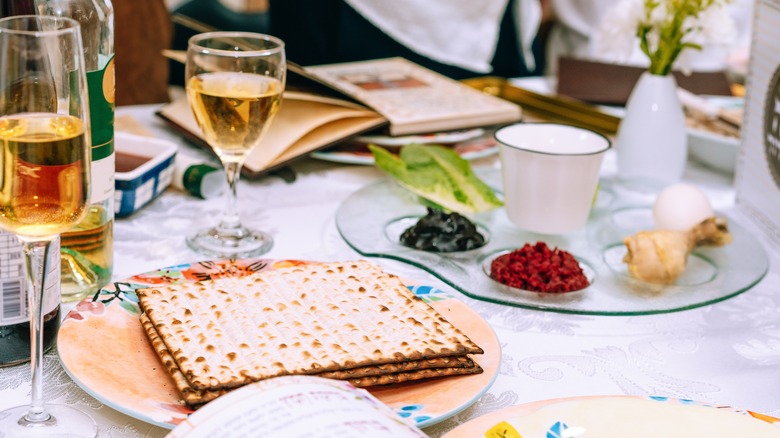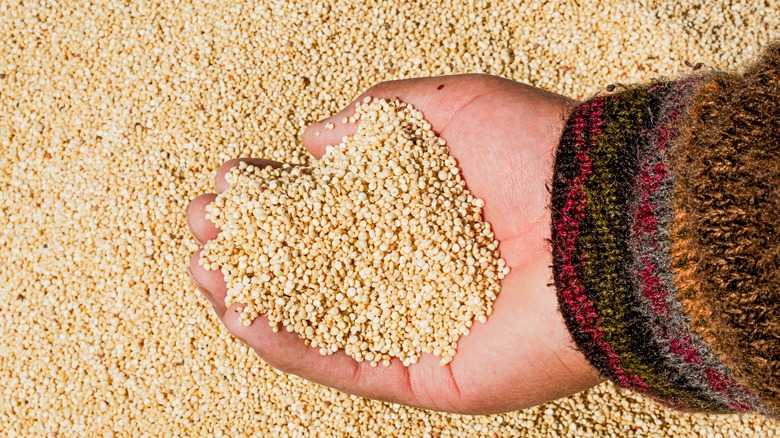Is Quinoa Kosher For Passover?
Religious dietary rules can be a bit complicated, especially when it comes to major holidays. Whether you are avoiding meat for Lent or keeping Kosher for Passover, you may have questions about once-unfamiliar foods that have now become common in grocery stores. While keeping Kosher normally involves the well-known rules of avoiding pork and shellfish and not mixing meat with dairy, the Passover holiday has additional restrictions, including which grains can be eaten.
During the Passover celebration, observers are not allowed to consume foods that are chametz, or leavened, which rules out wheat, barley, rye, oats, and spelt. This is because — whether you add a rising agent or not — after about 20 minutes of being in contact with water, these grains will ferment and rise. This unleavened quality makes for a dense, sometimes mealy final product, which, if you've ever had matzo ball soup, you're all too familiar with.
Since quinoa is not one of these grains (nor is rice, corn, oatmeal, millet, buckwheat, amaranth and teff), they are (generally) safe to include in meals during this week-long holiday observance. There are, however, a few wrinkles left to address.
Questions over quinoa
One reason questions have been raised over the use of quinoa in Passover meals is because there is some possibility of their intermingling with chametz grains. This is because many quinoa farmers in South America also grow barley, which is sometimes processed in the same facilities. To ensure these grains are not cross-contaminated, observant Jews should only purchase quinoa that contains a known Kosher certification marking on the packaging, meaning that the quinoa's production was inspected by an official agency.
There is also some debate among Jewish authorities as to what is suitable for Passover and what isn't. For example, in addition to avoiding chametz grains, under dietary law, Ashkenazi Jews avoid kitniyot, which is a category of foods that include many legumes and seeds (yes, quinoa too), out of an abundance of caution since they could easily be mixed up or confused with chametz. However, Smithsonian Magazine notes that in 2016 a movement of rabbis voted to lift the kitniyot prohibition during Passover, under the defense that chametz and kitniyot foods are not easily confused. But there are likely many that do not agree with this ruling and will continue to avoid quinoa on the holiday.
Sephardic Jews do not observe the same restrictions on kitniyot during Passover, thus shouldn't have cause to avoid quinoa.

